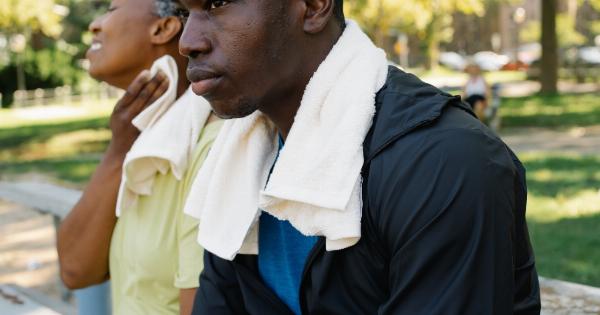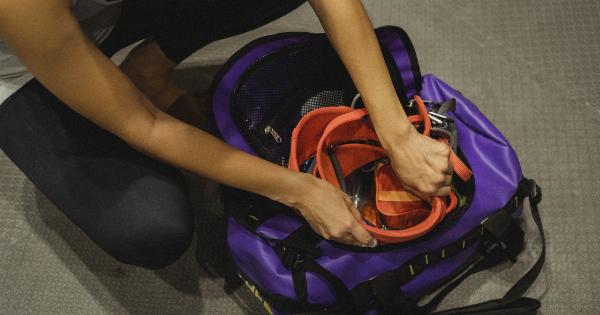Heat exhaustion is a condition that occurs when the body overheats due to prolonged exposure to high temperatures, especially in combination with dehydration and physical exertion.
While anyone can be at risk of developing heat exhaustion under extreme conditions, certain groups of people are more susceptible to this condition. Understanding these vulnerable populations can help raise awareness and prevent heat-related illnesses.
The Elderly
One of the most susceptible groups to heat exhaustion is the elderly. As people age, their bodies become less efficient at regulating temperature, making them more prone to heat-related illnesses.
Additionally, many older adults have underlying health conditions or take medications that can impair their body’s ability to cope with heat. It is crucial to ensure that the elderly stay hydrated, avoid excessive heat exposure, and have access to air-conditioning during hot weather.
Children and Infants
Children and infants are also highly susceptible to heat exhaustion. Their bodies are not yet fully developed, and they produce more heat per unit of body weight than adults.
Moreover, children may not recognize the signs of heat exhaustion or communicate their discomfort effectively. It is essential for parents and caregivers to take extra precautions when it comes to protecting children from extreme temperatures, keeping them cool, and providing them with plenty of fluids.
Athletes and Outdoor Workers
Athletes and outdoor workers engage in physical activities that generate heat and raise the risk of heat exhaustion. These individuals often spend prolonged periods outdoors, exposing themselves to high temperatures and direct sunlight.
Athletes, especially those involved in endurance sports, are prone to heat exhaustion due to the combination of physical exertion and exposure to elevated temperatures. Outdoor workers, such as construction workers and agricultural laborers, are at risk because their jobs require them to be outside during the hottest parts of the day.
Adequate hydration, rest breaks in shaded areas, and appropriate protective equipment are essential for these individuals to reduce their risk of heat-related illnesses.
People with Chronic Illnesses
Individuals with chronic illnesses, such as heart disease, diabetes, and respiratory conditions, have a greater susceptibility to heat exhaustion. These conditions can hinder the body’s ability to regulate temperature and adapt to heat stress.
Additionally, some medications used to treat chronic illnesses can interfere with sweating and increase the risk of dehydration. People with chronic illnesses should work closely with their healthcare providers to manage their conditions, especially in hot weather, and take steps to prevent heat exhaustion.
Obese Individuals
Obesity is another significant risk factor for heat exhaustion. People who are overweight or obese often have higher metabolic rates and increased insulation due to their excess body fat.
This combination makes it harder for their bodies to dissipate heat and cool down efficiently. Obese individuals should be particularly cautious during hot weather and prioritize staying hydrated and seeking air-conditioned environments when possible.
Individuals with Alcohol or Substance Abuse Problems
Alcohol and substance abuse can impair both judgment and the body’s natural cooling mechanisms. Excessive alcohol consumption can lead to dehydration and hinder the body’s ability to regulate temperature.
Substance abuse can also contribute to poor decision-making, leading individuals to engage in risky behaviors that increase their vulnerability to heat exhaustion. People struggling with alcohol or substance abuse should seek help and be aware of the added risks they face during periods of high heat.
People with Mental Health Conditions
Individuals with mental health conditions, such as schizophrenia, bipolar disorder, or depression, may have a higher susceptibility to heat exhaustion.
Certain medications used to manage mental health can interfere with the body’s temperature regulation, making individuals more prone to overheating. Moreover, mental health conditions may also impair a person’s ability to recognize and respond to the symptoms of heat exhaustion.
It is important for individuals with mental health conditions, as well as their caregivers, to be aware of the risks and take necessary precautions.
Pregnant Women
Pregnant women may be more susceptible to heat exhaustion due to the physiological changes their bodies undergo during pregnancy.
The increased blood volume and hormonal changes can make it more challenging for pregnant women to cope with high temperatures. Additionally, pregnant women often experience higher body temperatures and may be more prone to dehydration. It is crucial for pregnant women to stay hydrated, wear loose and breathable clothing, and seek cooler environments during hot weather.
Individuals with a History of Heat-Related Illnesses
People who have previously experienced heat-related illnesses, such as heat exhaustion or heatstroke, are at a heightened risk of recurrence.
Once an individual has had a heat-related illness, their body may be more susceptible to heat stress in the future. It is important for these individuals to be especially cautious during hot weather, take preventive measures, and be aware of the early signs and symptoms of heat exhaustion.
Individuals Without Access to Cooling Facilities
Finally, individuals without access to cooling facilities or who live in areas with limited resources may be particularly susceptible to heat exhaustion.
This includes individuals who cannot afford air conditioning, those experiencing homelessness, or individuals living in regions without reliable access to electricity. It is crucial for communities, local organizations, and government agencies to provide cooling centers, public spaces with air conditioning, and support to vulnerable populations during periods of extreme heat.
Conclusion
While everyone can be at risk of heat exhaustion under extreme conditions, certain groups of people are more susceptible to this heat-related illness.
The elderly, children, athletes, outdoor workers, individuals with chronic illnesses, obese individuals, those with alcohol or substance abuse problems, people with mental health conditions, pregnant women, individuals with a history of heat-related illnesses, and those without access to cooling facilities are the most vulnerable populations. Awareness, education, and targeted support for these groups are essential to prevent heat exhaustion and promote overall well-being during periods of high temperatures.





























